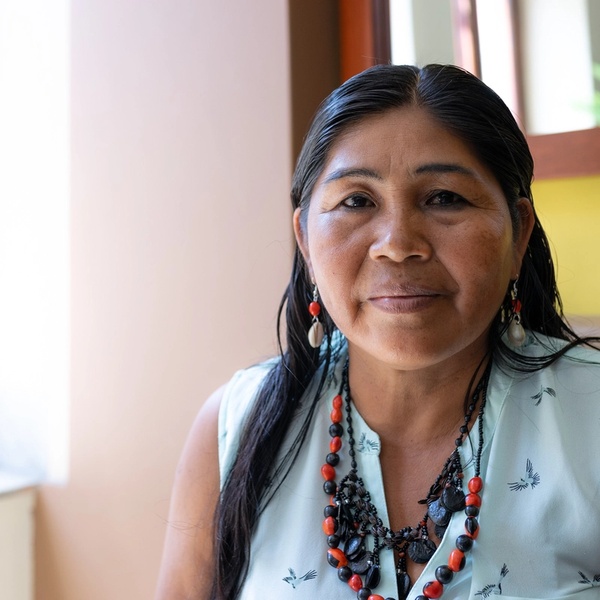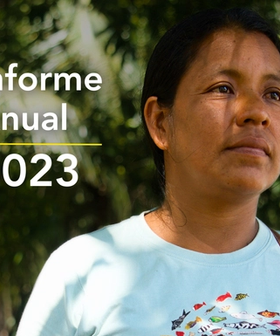We believe that the ancient indigenous philosophy and way of life, sumak kawsay (“el buen vivir” or “good living”), is inherently protective of human and nature rights. We subscribe to the Universal Declaration of the Rights of Mother Earth. This means enshrining the equality of all life within nature and ensuring respect for the self-determination of all our planet’s inhabitants.
We work closely with the indigenous movement of Loreto to promote the fundamental human and nature rights in one of the world’s most diverse regions, both in terms of cultural and biological diversity. We combine research with activism, documentation, and audio-visual communications. We provide technical-legal support to our allies and suggest practical solutions that we incorporate into our Permaculture and Intercultural Education Programs
SUPPORT OUR WORK HERE
Empowering Indigenous Women
Our main partner is the female led Kukama organization Huaynakana Kamatahuara Kana from the Marañon River, with whom we currently implement a mutual project to strengthen their individual and organizational capacities to pursue the organization’s vision and goals. Thanks to their efforts, the Marañon River, one of the most important rivers in Peru and a source of the Amazon, was declared as a rights holder.This recognition marks a historic moment not only for nature rights in Peru but also for indigenous peoples.

"We want the Marañón river to be respected. It wants to live peacefully, just like we want to live in tranquility. [...] What we are asking for is not only for the Kukama people, not just for the Amazonians, but for the whole country and the world. What we are asking for is a very fundamental issue."
Our Human & Nature Rights Program focuses on three main areas: female leadership, The Right to Clean Water
and practical and ecological community solutions.
Through our work with the indigenous movement
We have produced documentaries, reports, and contributed to a policy paper on food sovereignty and regenerative and culturally sound production systems in the northern Peruvian Amazon for The Sacred Headwater Initiative (SHI).
During the Covid emergency, we also made great efforts to alleviate the impacts of the pandemic on indigenous communities, raising $125,000 for basic medicines, food support, protective gear, and emergency funding for the local / indigenous peoples in need.
Today, besides promoting the recovery of sustainable indigenous production systems, which contribute to additional income and food sovereignty of Amazonian families, we work with indigenous, local and international organizations to raise awareness about the importance of nature rights, contributing to campaigns that seek to mobilize the population to change this situation.

Indigenous organizations and other local groups in the Peruvian Amazon are our most important allies in championing and defending Human and Nature Rights.
The Challenge
We perceive the current global development model to be the major cause of growing inequality among people, of violations of basic human rights as well as the rights of nature.
It is a model that incurs unsustainable and unreasonable consumption levels, and the destructive, uncontrolled exploitation of natural resources across the planet. In our region, as elsewhere, extractivism has led to poverty, ecological devastation, land theft, food insecurity, corruption, the criminalization of social protest, deforestation, climate change, armed conflict, forced migration, and countless other forms of environmental and social harm.
We believe that we must transcend the human-centred and profit-focused limitations of our current legal systems if we are to recognize, respect and enforce the rights of Earth and its peoples.
Indigenous nations have traditionally maintained a deeply harmonious relationship with the land that supports them, demonstrating a cosmology of reciprocity, equality and respect for all beings, exemplifying “el buen vivir”, living the “good life” in symbiosis with nature. As the first peoples exposed to the destruction wrought by extractive industries in the Amazon, and often the first ones affected by a changing climate, they are also the first ones to stand up and show the way to a sustainable future.
“Every component of the Earth Community has three rights: The Right to Be, The Right to Habitat, The Right to fulfil its role in the ever-renewing processes of the Earth Community.”
- Thomas Berry





